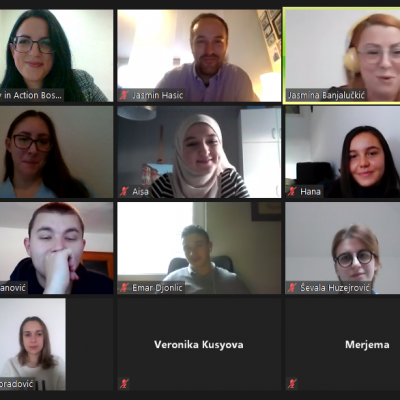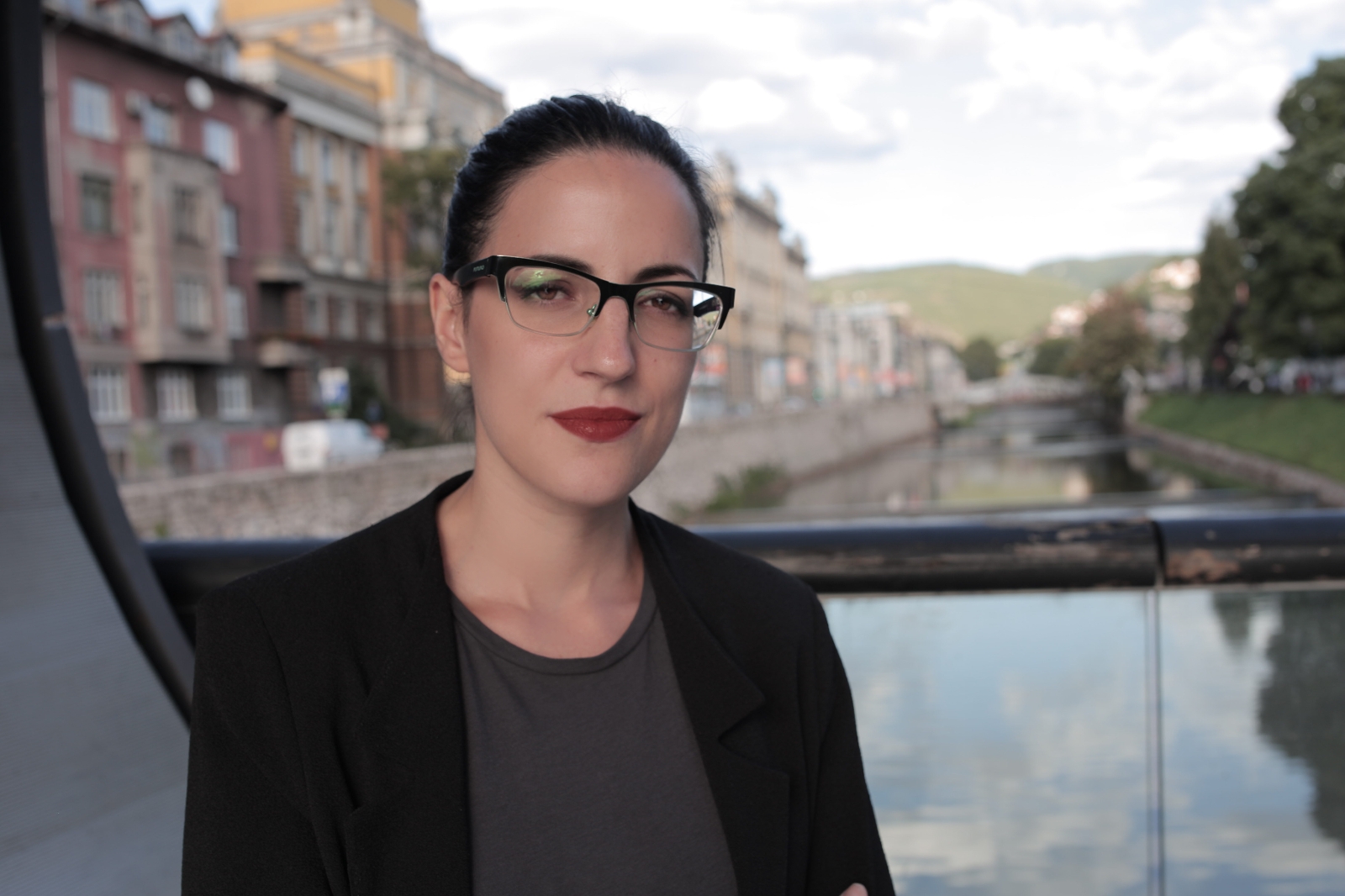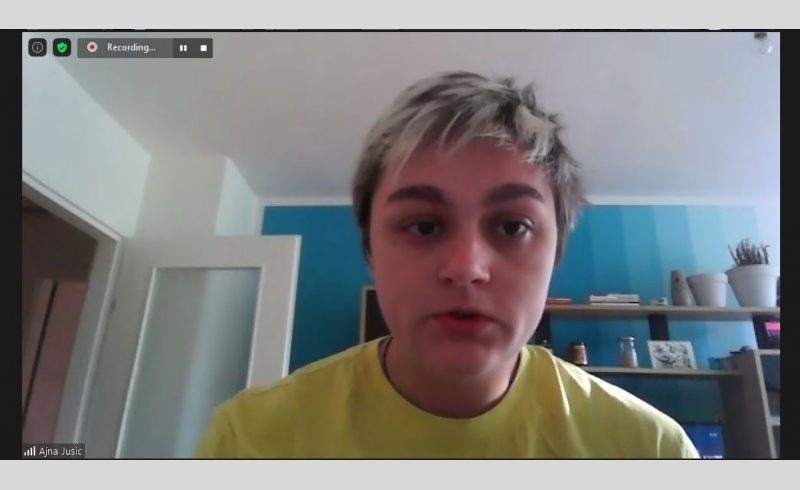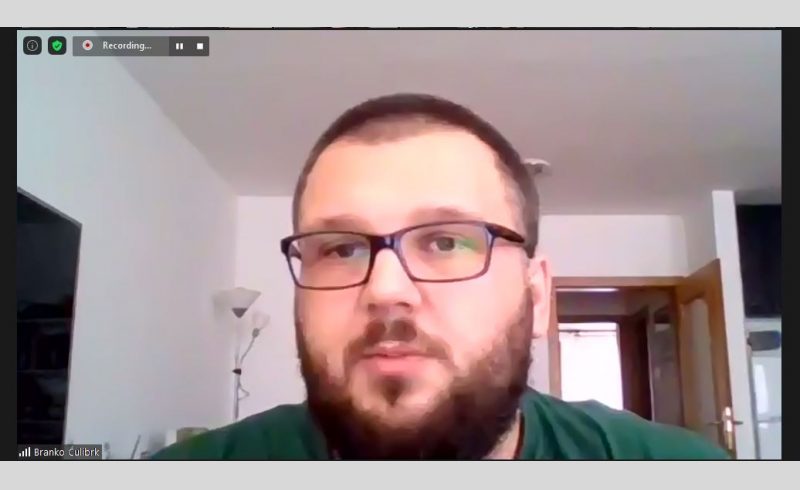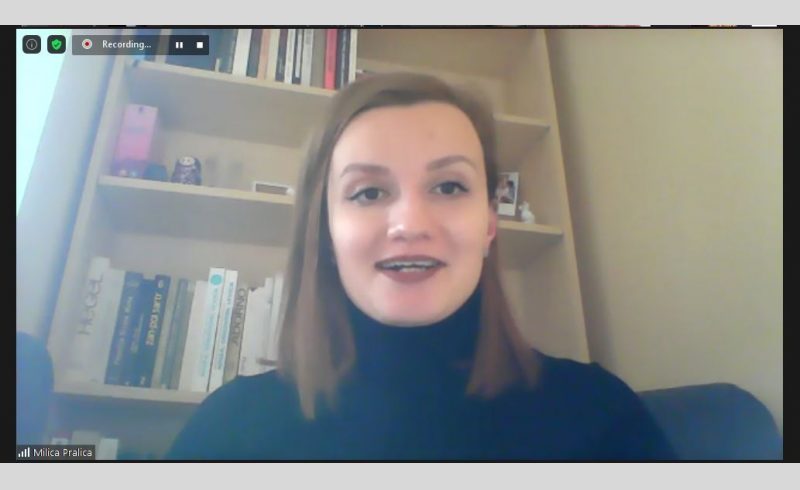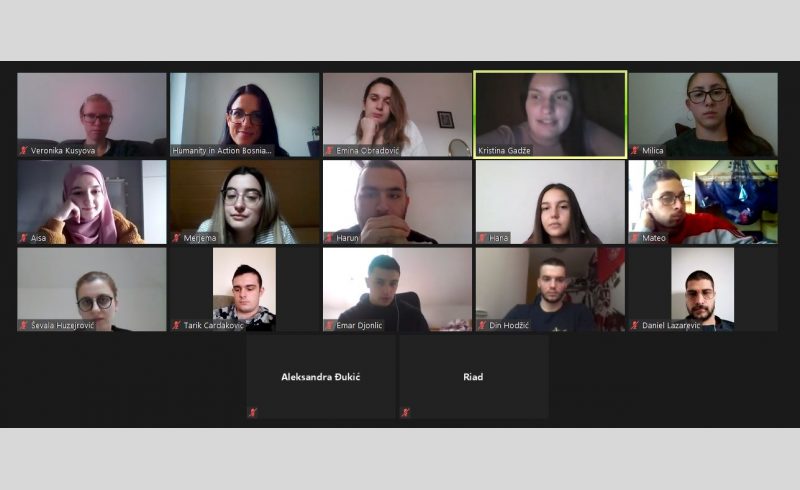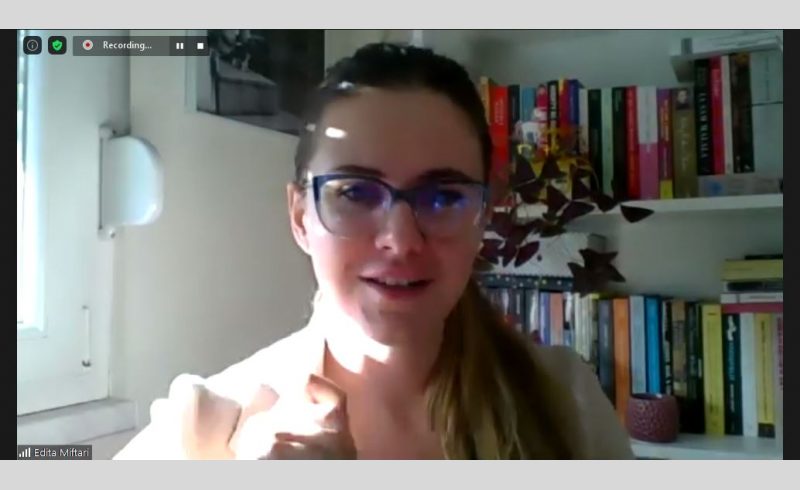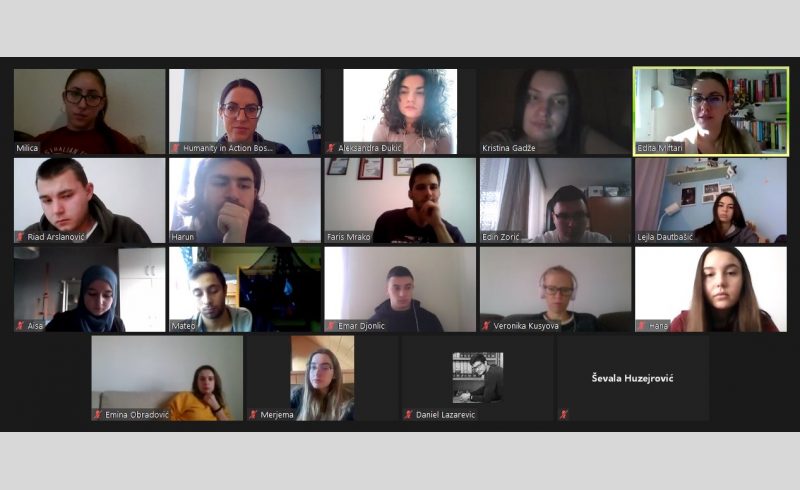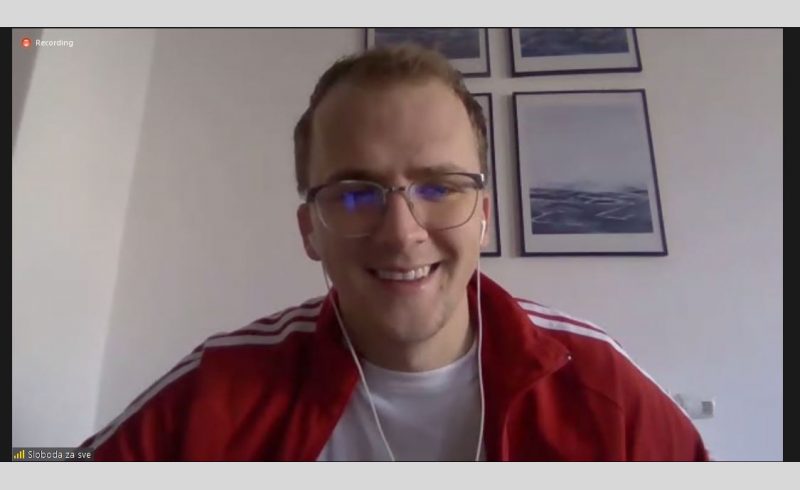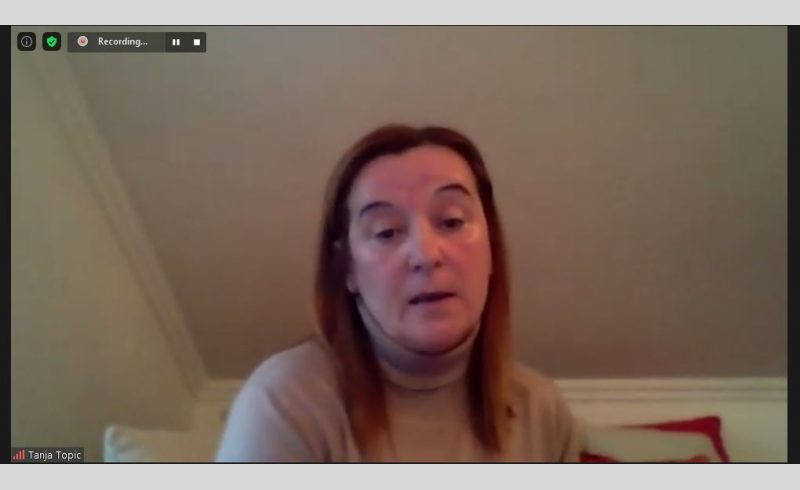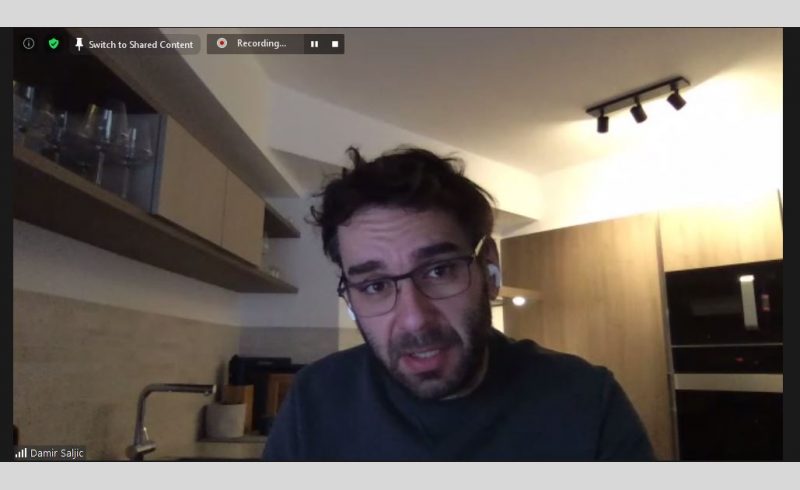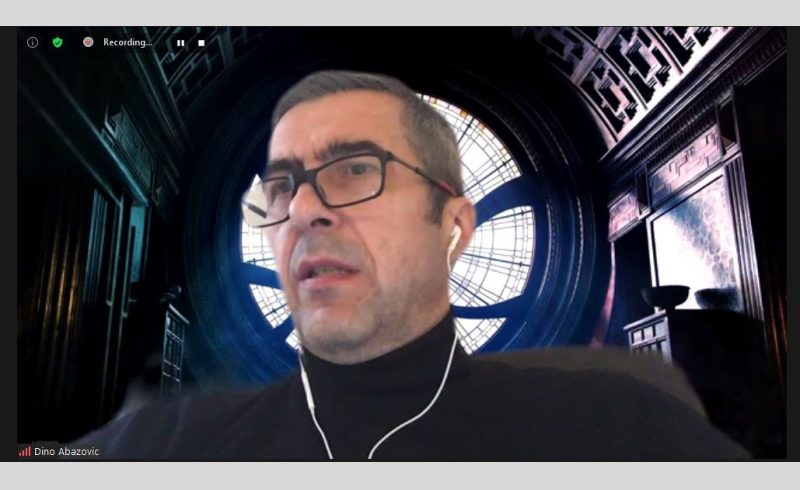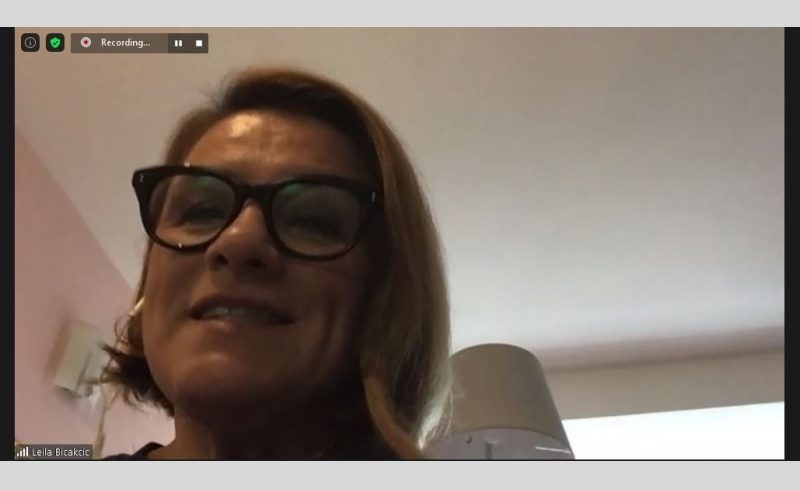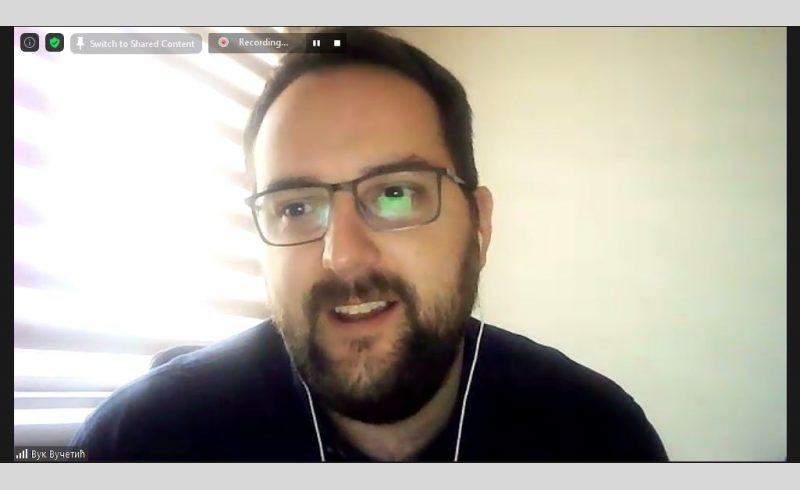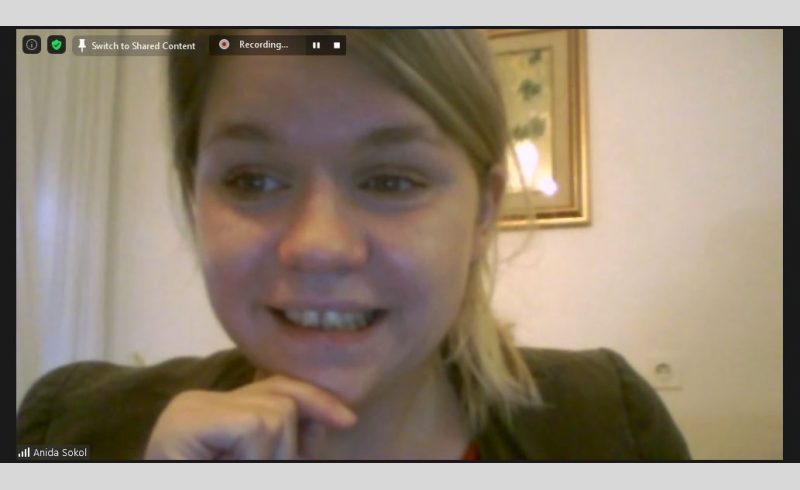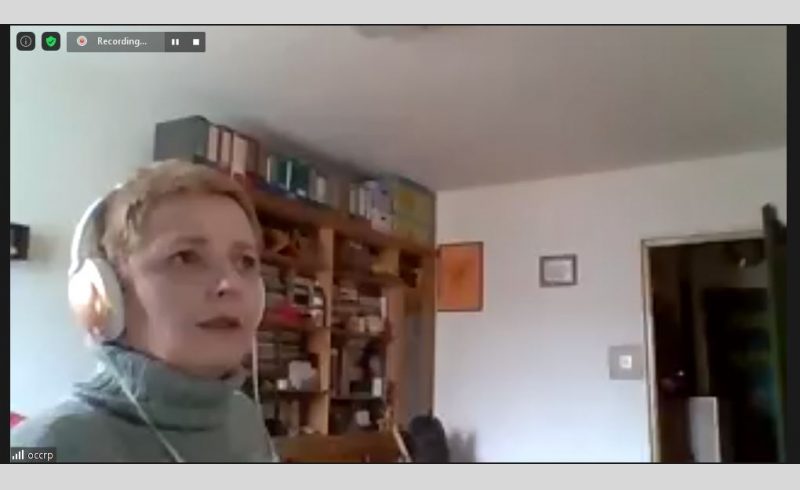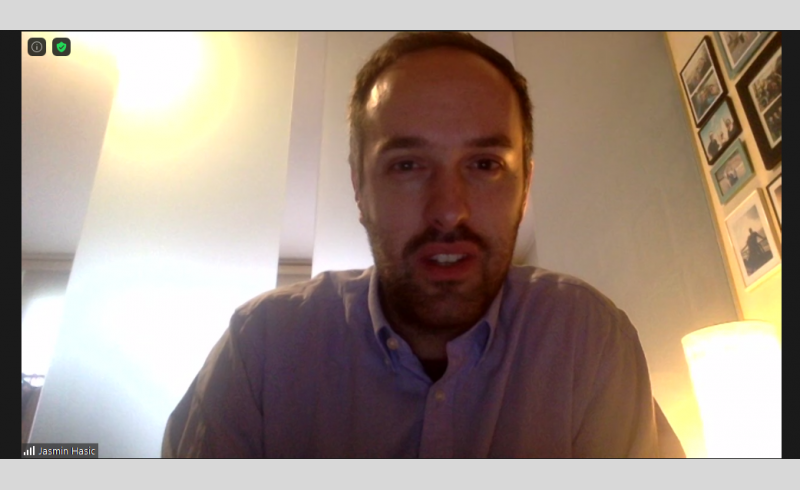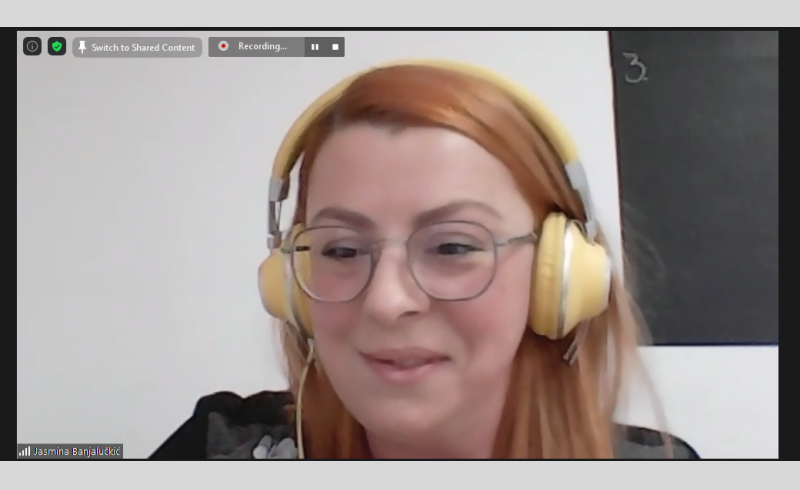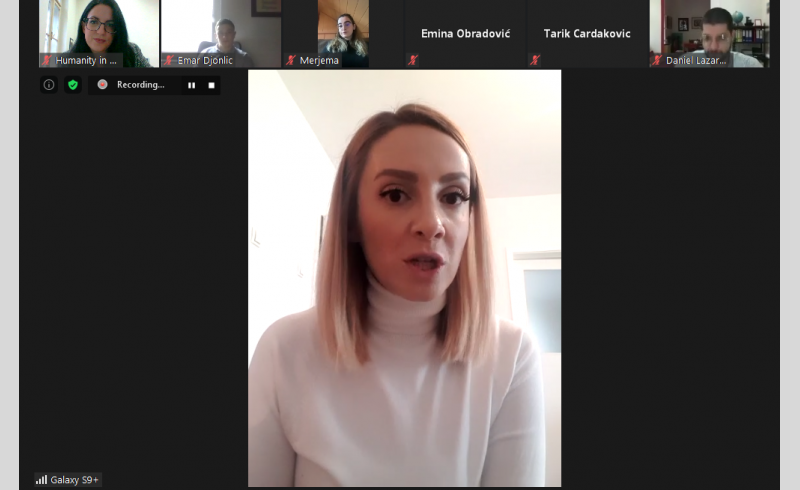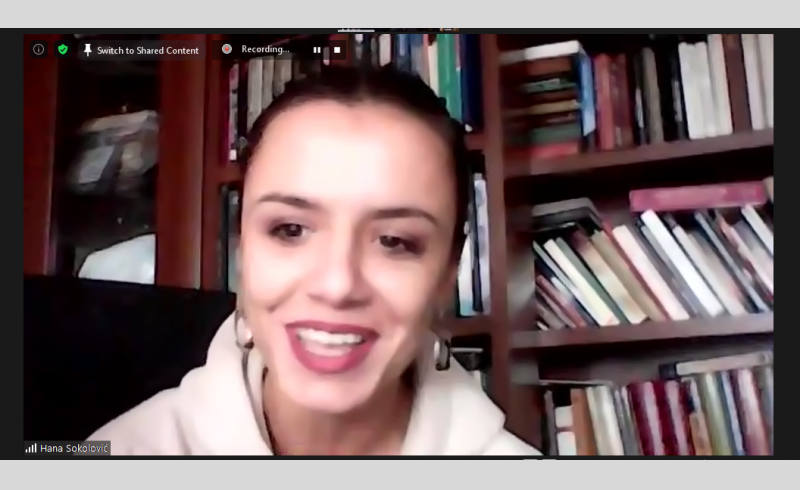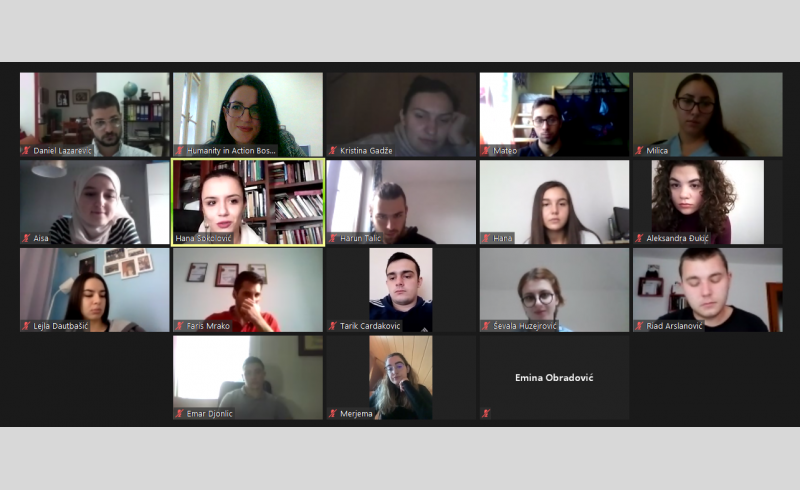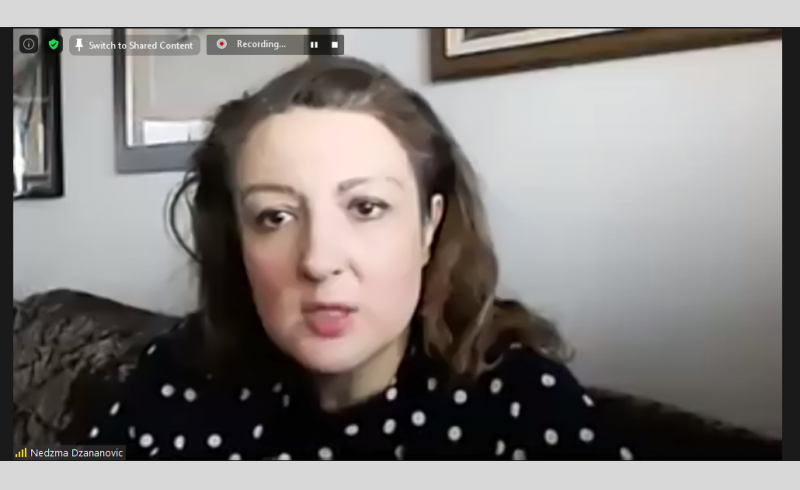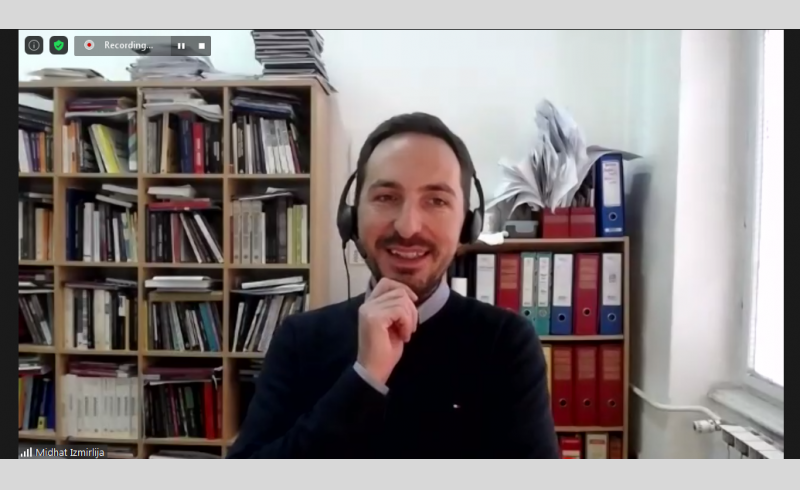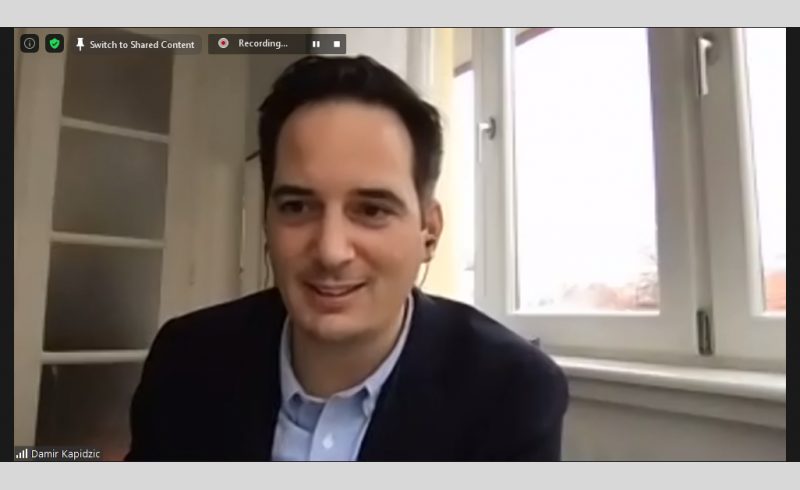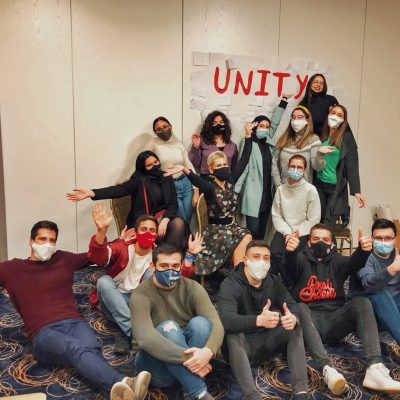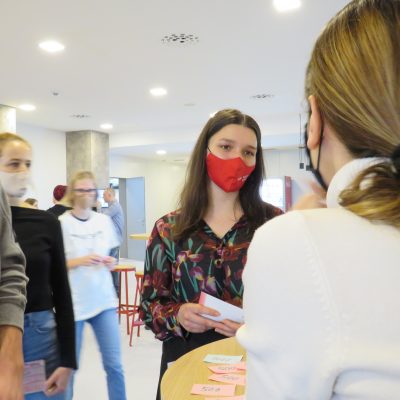Details
Article
Due to health risks posed by the covid-19 pandemic, for the first time ever Humanity in Action BiH organized 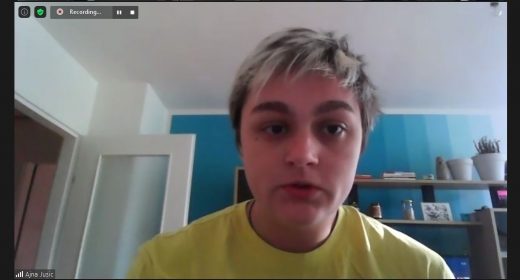 the EDVACAY first educational module in an online format. Our 15 participants spent two weekends together online listening, learning and discussing various topics covered by various experts and activists.
the EDVACAY first educational module in an online format. Our 15 participants spent two weekends together online listening, learning and discussing various topics covered by various experts and activists.
1. Week (December 4-6, 2020)
The focus of the first part of the program was on the active youth engagement.
Jasmina Banjalučkić from the ‘Institut za razvoj mladih KULT’ opened the program with the lecture where fellows had the opportunity to learn about the youth rights and different laws in Bosnia and Herzegovina which are regulating youth engagement, activism, and youth organizing in different communities across BiH.
Afterwards, we were joined by attorney-at-law Armela Ramić who spent her time with fellows talking about the student activism through her own personal experiences, as well as discussing post-graduate practices and professional trajectories of the youth in BiH.
Hana Sokolović, founder and president of “Network of Activist Changes” talked to fellows about what 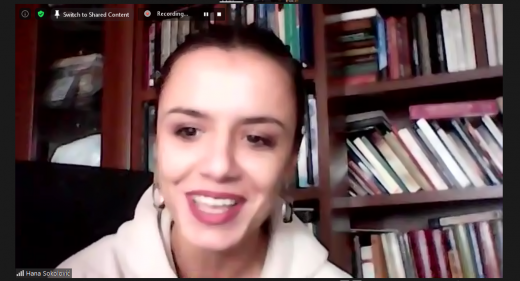 activism is and how can local activism be encouraged among Bosnian youth, using her own examples of different actions organized by her and her peers.
activism is and how can local activism be encouraged among Bosnian youth, using her own examples of different actions organized by her and her peers.
Second day of programming began with Ajna Jusić, founder and president of the “Forgotten Children of War Association”. She talked about the important work of the Association and its influence on shaping narratives about the post-conflict Bosnia and Herzegovina, especially focused on women and girls who are the survivors of the sexual violence and rape during the war in BiH. According to some estimates, tens of thousands of women and girls were raped during the 1992-95 war in Bosnia, and the number of children born as a result of the crime is believed to reach 4,000. They are called the forgotten children of war. Ajna is one of them and today she uses her identity as a child born for the act of rape to fight the stigma as an activist for the Forgotten Children of War Association.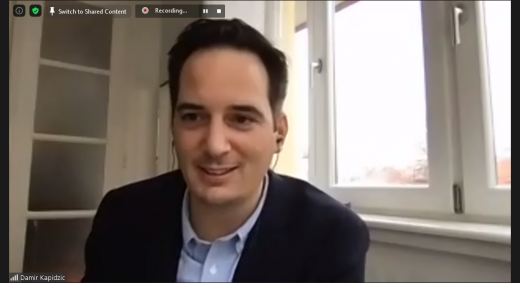
Branko Ćulibrk from “Youth Center KVART” from Prijedor gave a historical overview of significant youth initiatives and their struggle for the rights of queer people from the period of Yugoslavia to the present day, emphasizing the current LGBT + initiatives in Prijedor.
Second day was wrapped up by Milica Pralica from “Oštra Nula” association. Milica shared stories with fellows from her many years of activist experience fighting for citizens’ rights in Banja Luka and other cities in the Republika Srpska Entity. She talked about many difficulties, as well as successes that they have witnessed during their fight.
Final day of lectures began with Edita Miftari, governance and leadership coordinator at UN WOMEN. She opened a very lively discussion with our fellows on the topic of gender equality in public and political life in BiH, looking at the topic through the prism of laws and social norms set by the society in Bosnia and 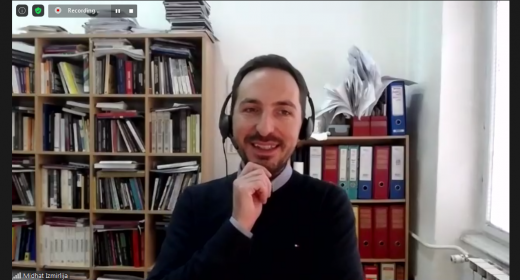 Herzegovina.
Herzegovina.
Mahir Sijamija, EDVACAY Alumni and HIA Senior Fellow joined us to talk about the role of young people in the digital and media space, different opportunities, responsibilities and limitations for their activism and organizing.
The final session of the first 3 days was a lecture by professor Sabina Čehajić-Clancy, PhD, on the process of youth reconciliation in BiH. Dr. Čehajić-Clancy, a social psychologist whose research is focused on the reconciliation process, spoke about social identities in (post) conflict societies, with special emphasis on youth in BiH and the results of an empirical research lasting more than 15 years.
Professor Midhat Izmirlija, PhD, from the University of Sarajevo Faculty of Law talked with fellows about the current democratic challenges in BiH, asking them questions through which fellows reflected on the key concepts that make up democracy and a democratic society.
The day was concluded with a lecture by professor Damir Kapidžić, PhD, from the Faculty of Political 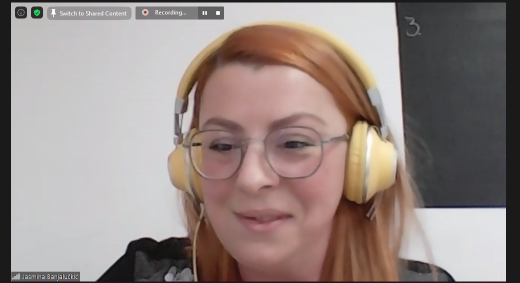 Sciences in Sarajevo. After the introduction to the challenges of BiH democracy, professor Kapidzic went deeper into the topic of democratic representation in multiethnic states, with a special focus on BiH.
Sciences in Sarajevo. After the introduction to the challenges of BiH democracy, professor Kapidzic went deeper into the topic of democratic representation in multiethnic states, with a special focus on BiH.
We were joined by Tanja Topić, political analyst and research associate and a research associate at the Friedrich Ebert Stiftung Bosnien und Herzegowina on the second day. She talked with fellows about political relations in BiH, with a special reference to the events in the Republika Srpska entity.
We continued the day, discussing the structural economic challenges in Bosnia and Herzegovina with Damir Šaljić, economic adviser at the British Embassy in Sarajevo.
Aiša Telalović, program manager at the JDN-organized Crime and Corruption Reporting project, explained to fellows how they can communicate with public administration bodies in BiH, on which basis they have the right to information, and why they should ask for it. 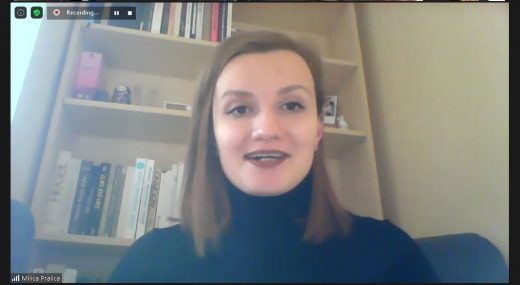
The last day of the second part of the online educational module started with a lecture on media literacy and the currents state of media literacy in BiH with professor Vuk Vučetić, PhD, from the Faculty of Philosophy, University of East Sarajevo.
HIA Senior fellow Anida Sokol, scientific researcher and project coordinator in Mediacentar Sarajevo, spent her time with fellows continuing the conversation on the topic of media and the importance and role of the media in BiH society.
We continued focusing on the media in a conversation with Leila Bičakčić, director of the Center for Investigative Reporting (CIN). Through CIN’s work on investigating corrupt practices in the spending of public budget funds, fellows had the opportunity to learn more about the relationship between politics and the media and the great importance and role that the media plays in democratic societies.
The online part of the educational module of the EDVACAY program was successfully concluded by a very impactful conversation with professor Dino Abazović, PhD, from the Faculty of Political Science, University in Sarajevo, on the topic of dialogue and tolerance observed through the perspective of sociology.

